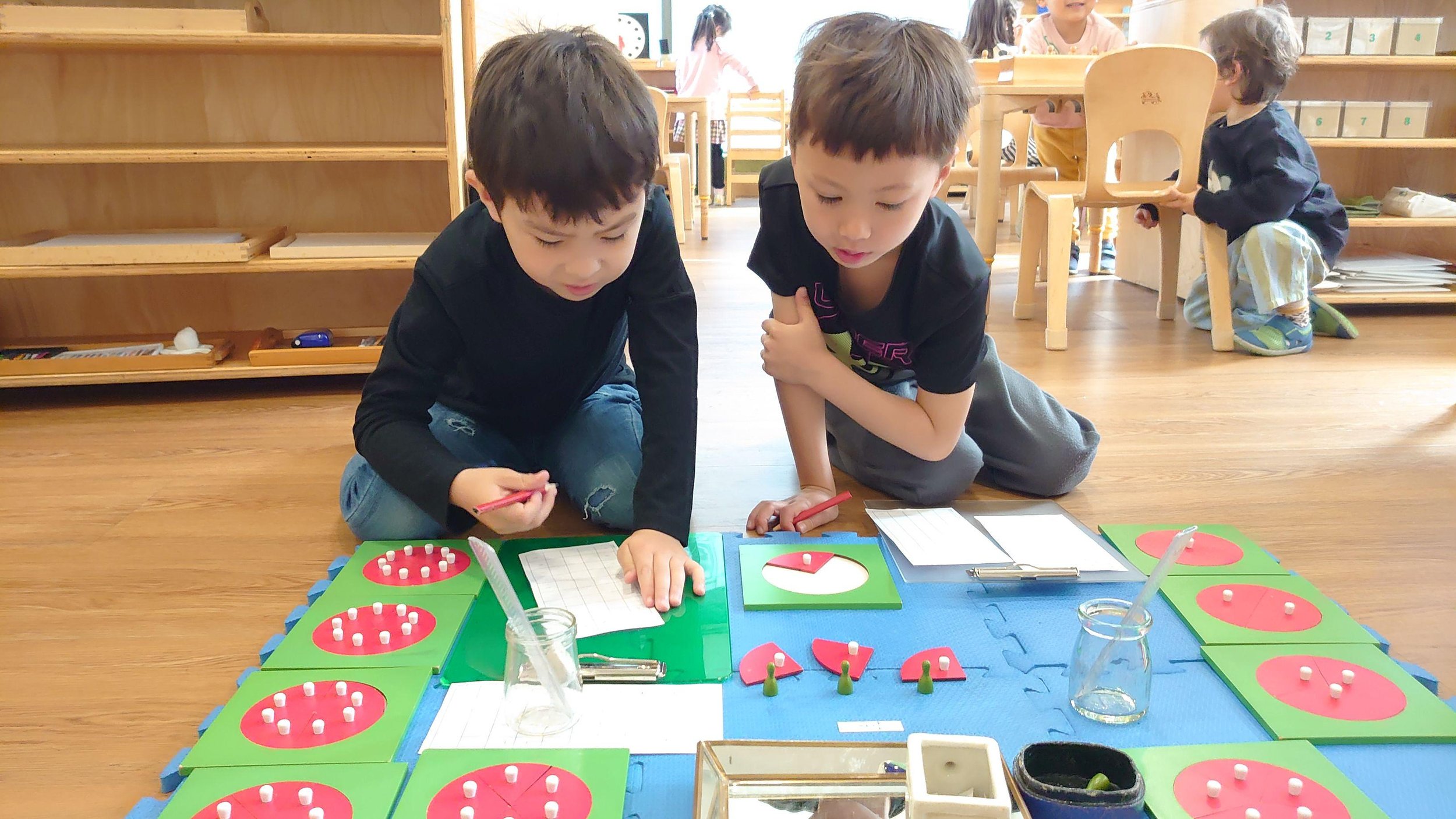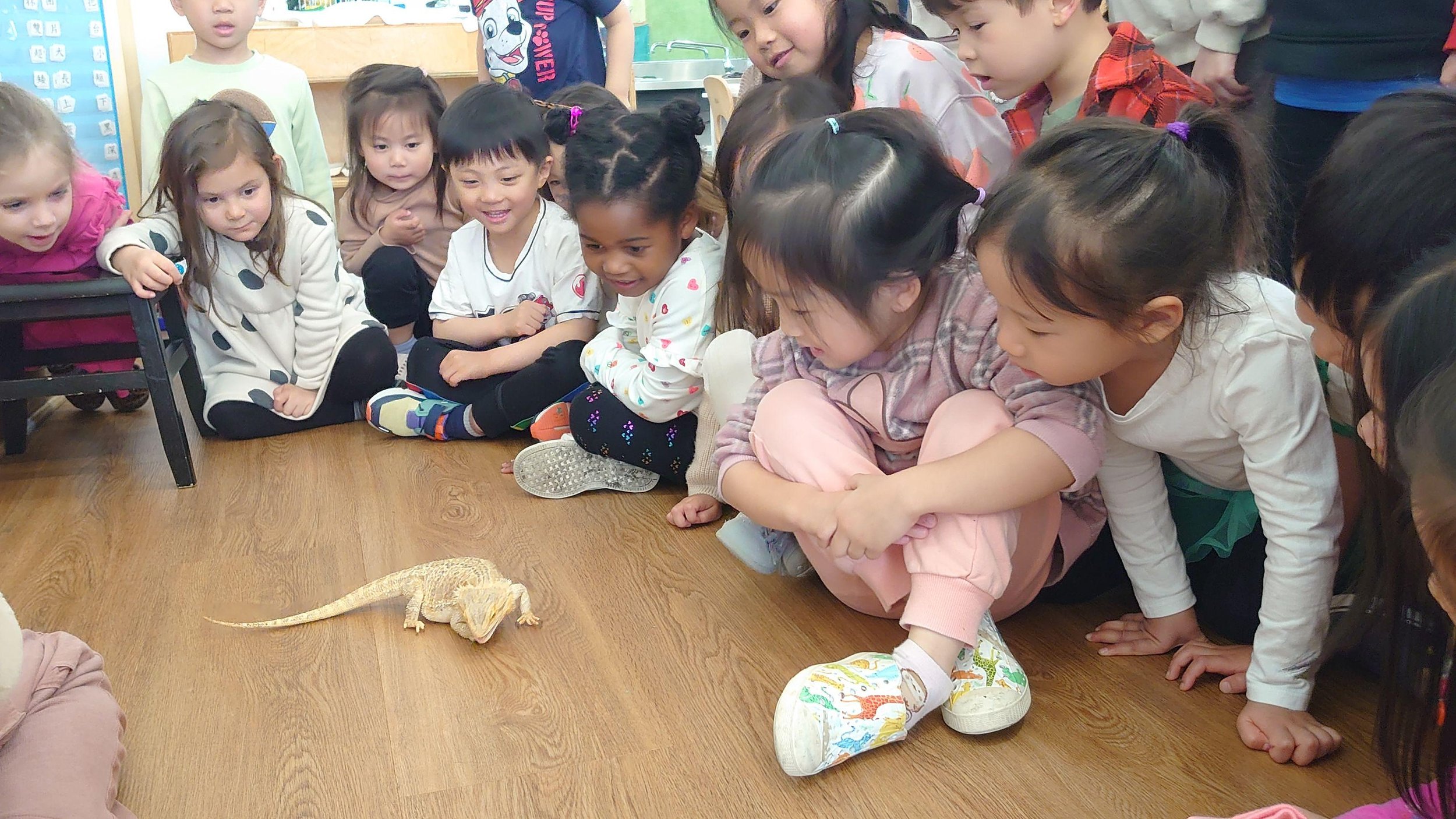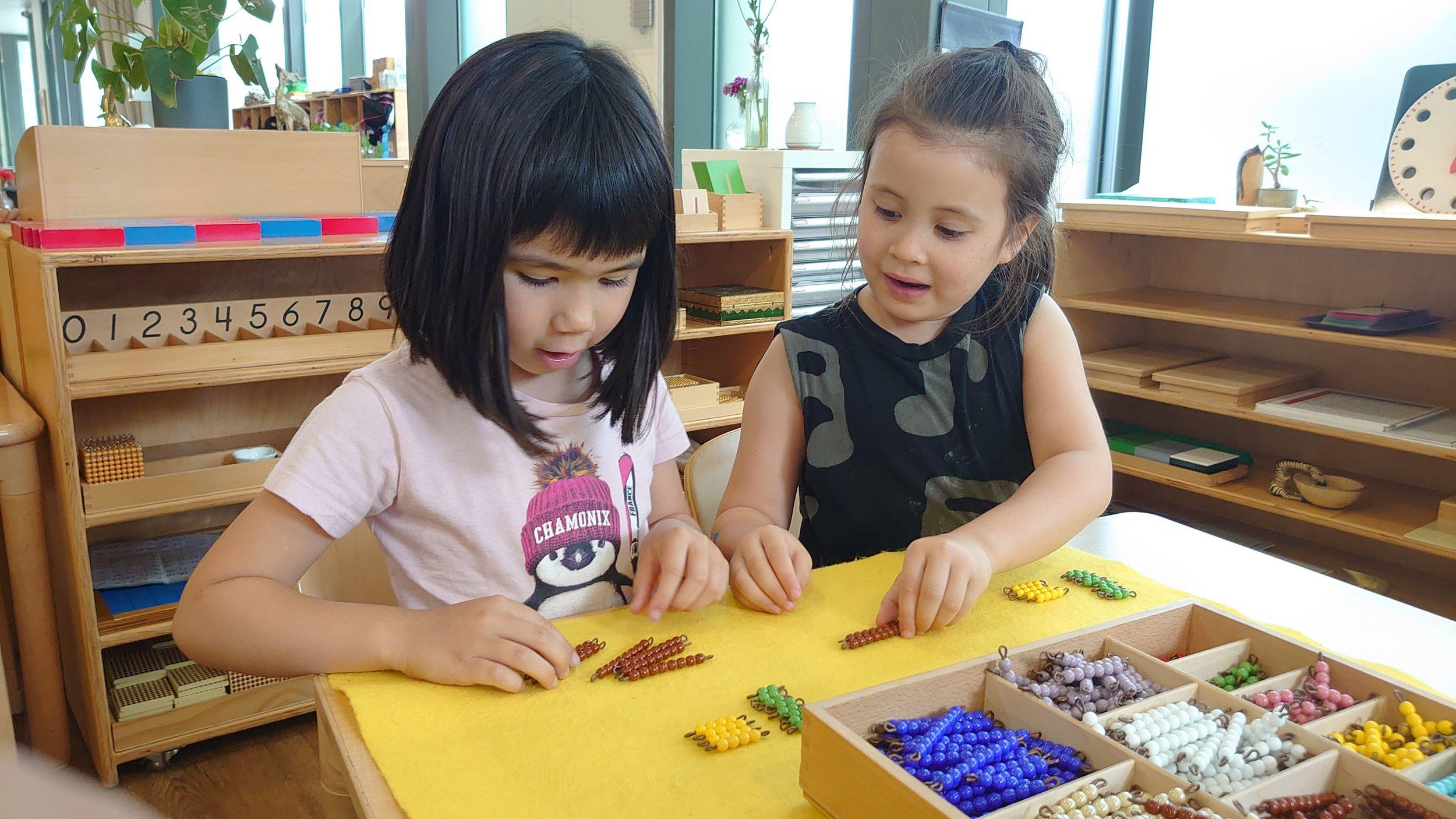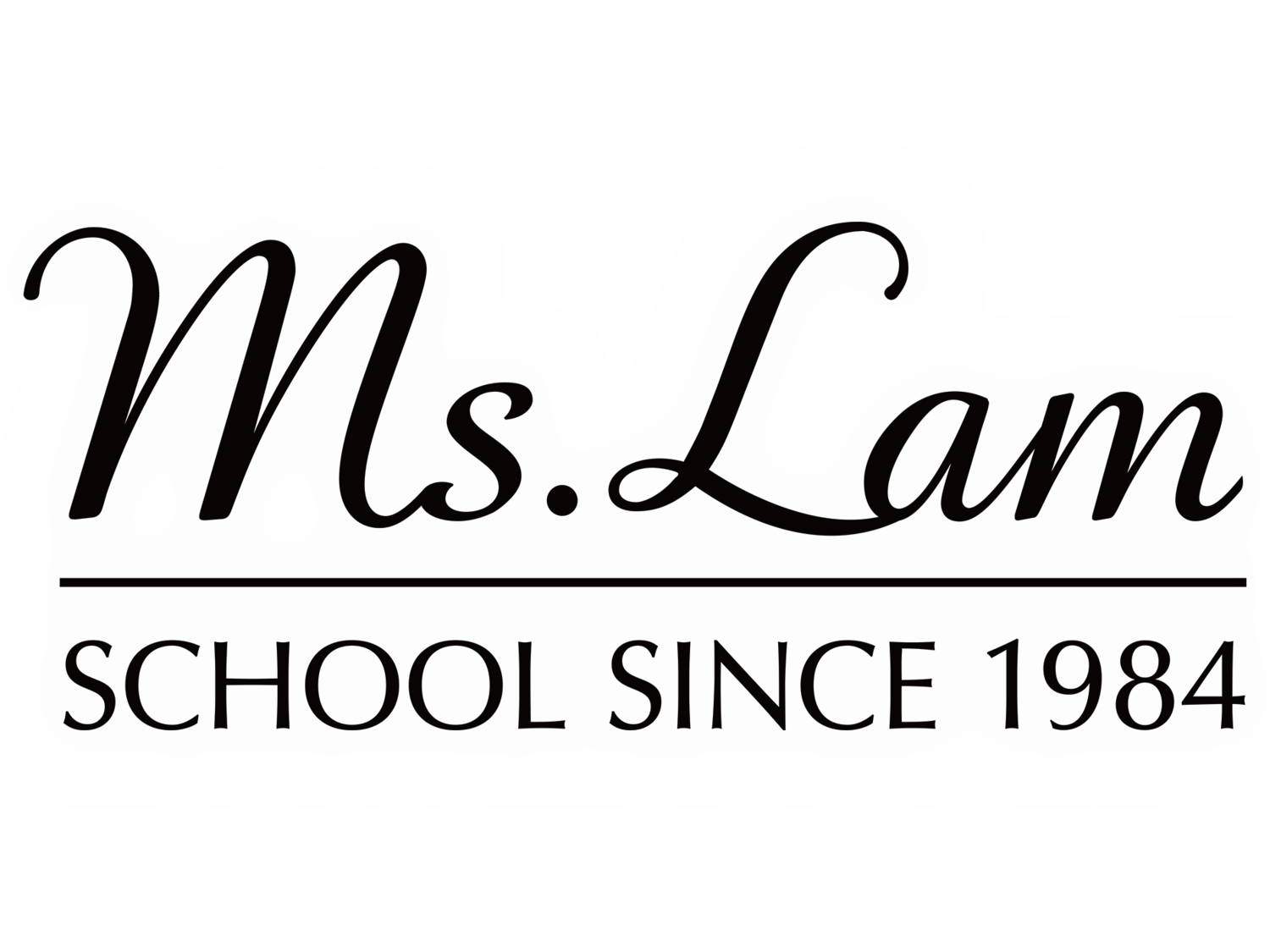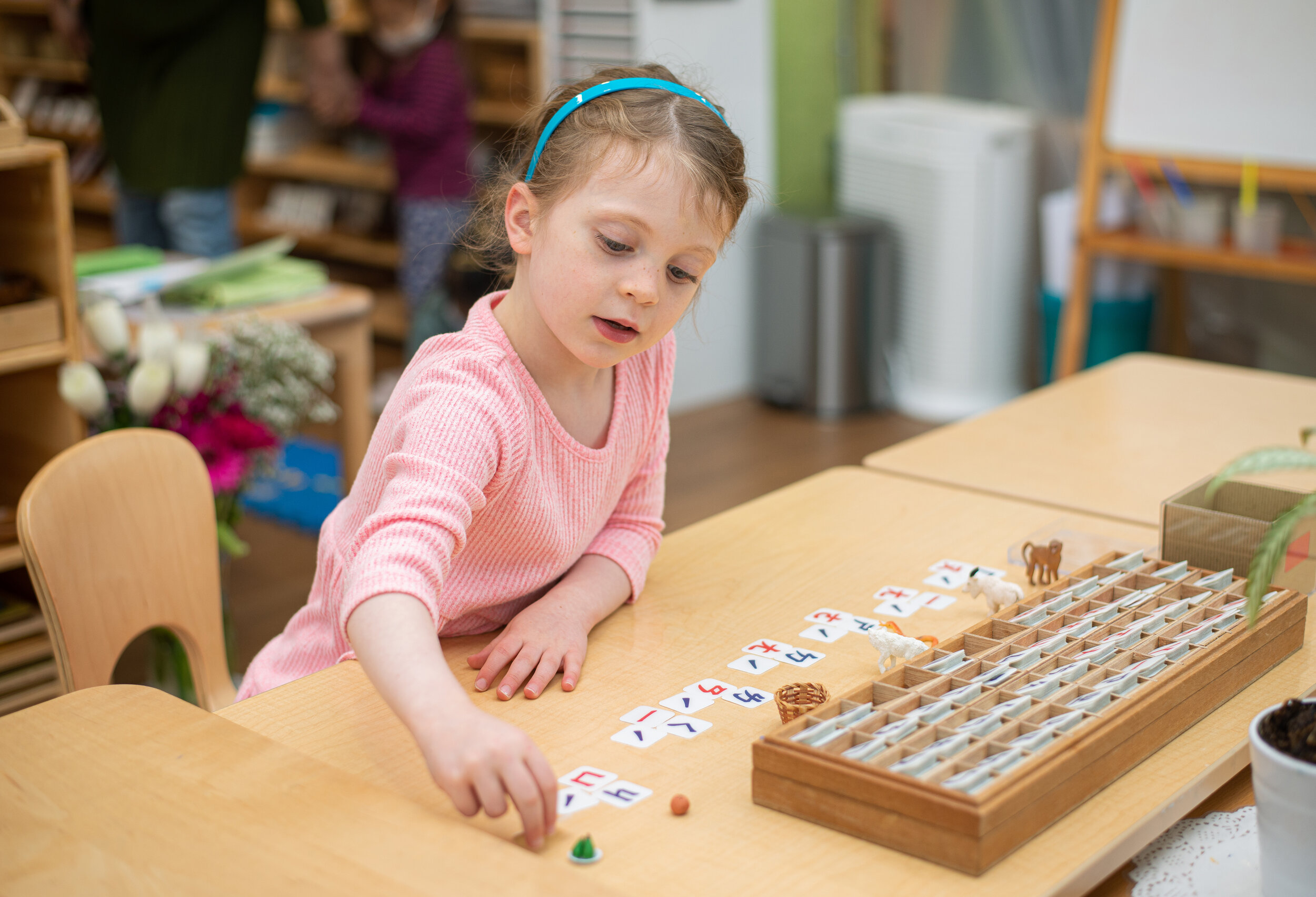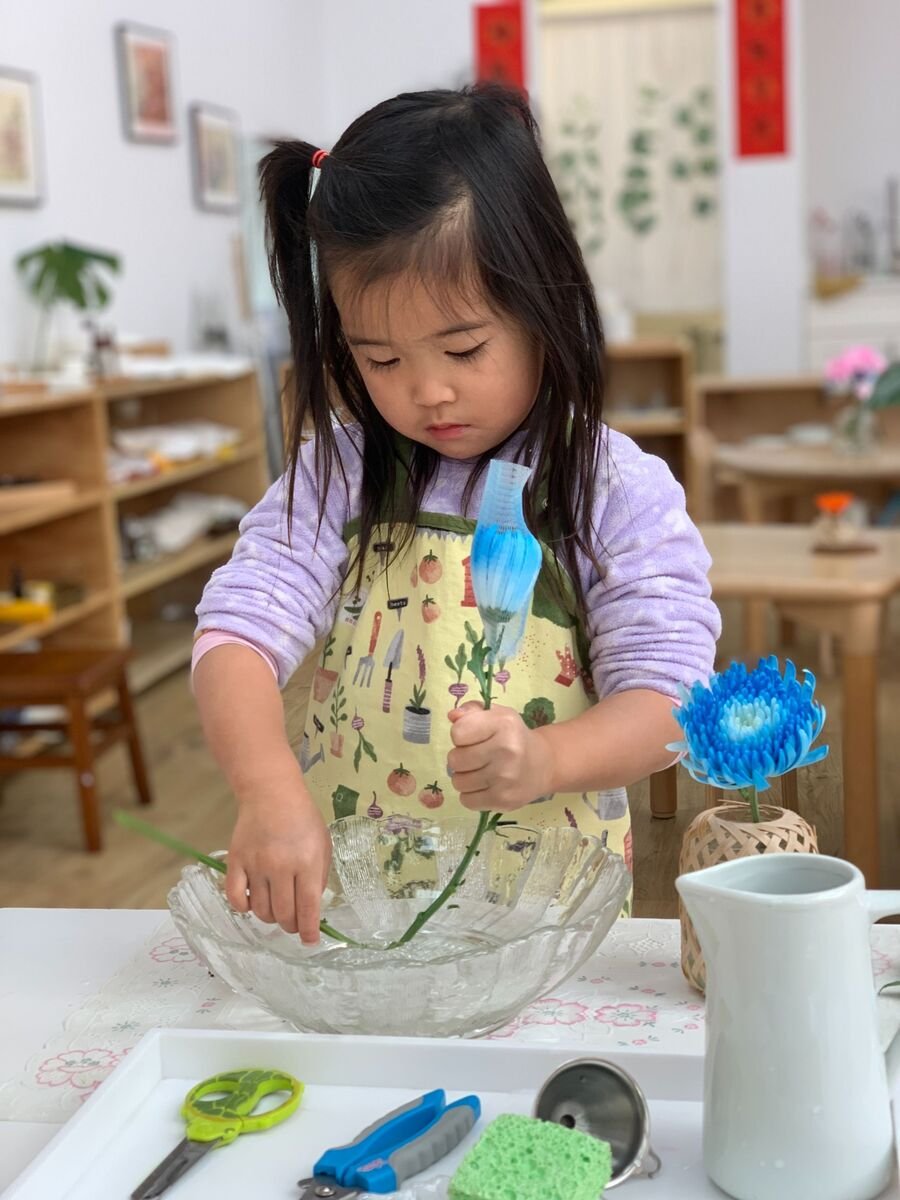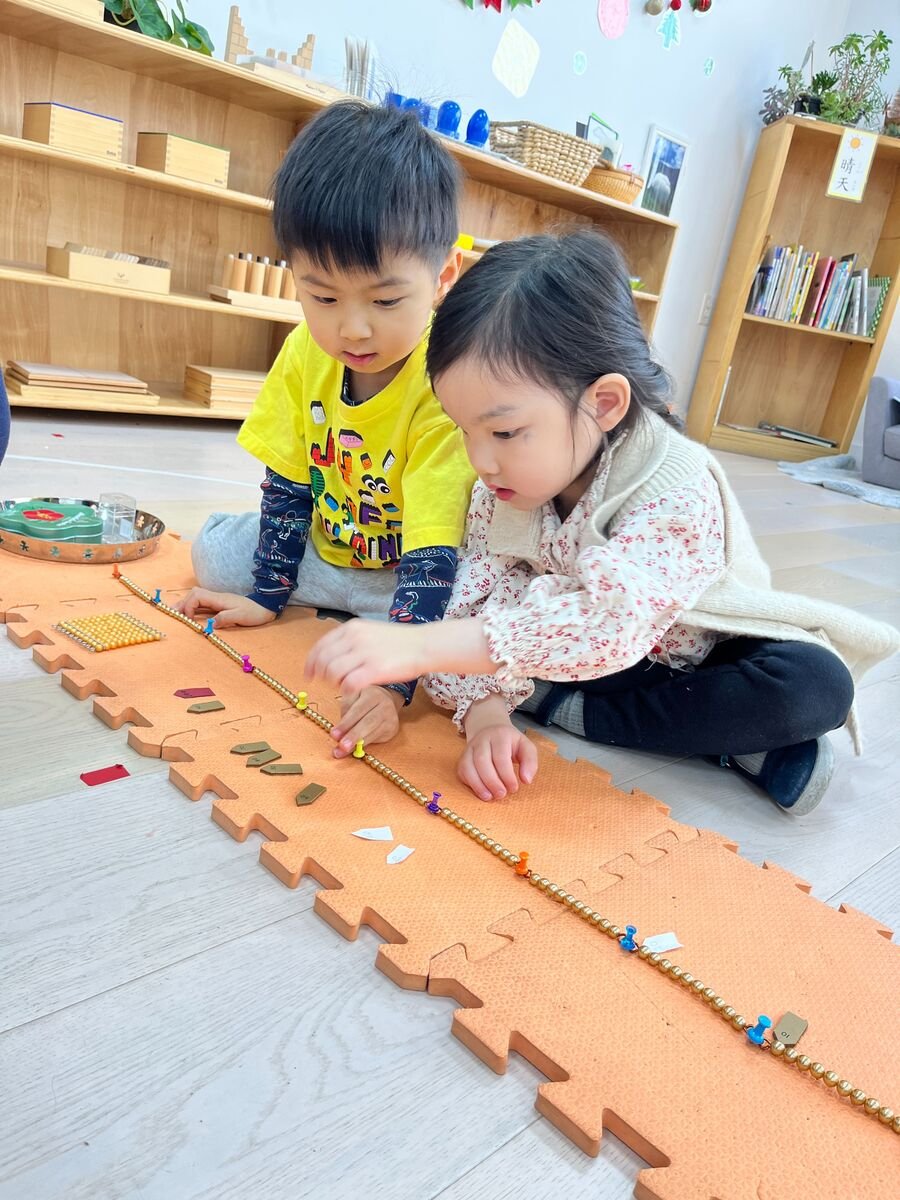Primary Program
3-6 yrs
Full day or Half Day
Full-Day Hours: M-F, 8am - 3pm
Half-Day Hours: M-F, 8am - 11:30am
Our Primary curriculum is a rich, diverse and in-depth learning program for 3-6 year-olds focuses on culture, language, math, science and art. Mandarin-immersion, with English instruction in the afternoons and monthly outings.
At the heart of all we do is following the natural tendencies of the child. More than 100 years ago, an Italian medical doctor, Maria Montessori, made groundbreaking discoveries of how children learn. She observed, she experimented, and she developed a system that facilitates natural, joyful, and spontaneous learning. Children from 3 to 6 have a remarkable ability to absorb the world that surrounds them. We provide materials they are interested in, at a time when they are ready, and in a way that is developmentally appropriate. Carefully designed lessons are presented to each child by the teacher, one-on-one.
Montessori materials are self-correcting, so the child knows if she is right or wrong, without needing to be told. This aids independence and allows even young children to direct their own learning.Then, as children go to work in our primary classrooms, their natural abilities make learning easy. We observe children as they practice and repeat and practice some more. At this age, each has a natural tendency for repetition and an extraordinary ability to concentrate. Mastering an activity brings joy!
Children from 3-6 have a remarkable ability to absorb the world that surrounds them. We are constantly creating real-life, hands-on experiences to stimulate the children’s senses and nurture the whole child, as we believe this is the best way to stimulate the brain and help children develop and grow in the best way possible. Our primary program provides: language learning, sensorial learning and practical life learning.
Mandarin
Spoken Languages: Frequently-used phrases, songs, poetry, books, vocabulary
Writing: Learning the alphabet, composing words with the alphabet Words -> Phrases -> Sentences, writing with Common Sentence Structures
Reading: Phonetic Object box, phonograms, reading classification, function of the words: article, nouns, adjectives, verbs, conjunctions, adverbs, punctuation
English
Spoken Language: Songs, poetry, books, vocabulary
Writing: Learning the alphabet, composing words with the alphabet words -> Phrases -> Sentences freedom of expression in writing, learning how to write in cursive
Reading: Phonetic object box, phonograms, reading classification, function of the words: Article, nouns, adjectives, conjunctions, prepositions, verbs, adverbs, punctuation, commands, reading analysis, word study
Cultural extensions: Clock and calendar
Mathematics
1-10: Number Rods, spindle box
The Decimal System: Ones, tens, hundreds, thousands, addition, subtraction, multiplication, short division, word problems
Continuation of counting: Teens, tens, skip counting (by 2s, 3s, 4s, 5s, 6s, 7s, 8s, 9s, 10s)
Exploration and Memorization of Essential Combinations: Addition, subtraction, multiplication, division
Passage to Abstraction: Small bead frame, large bead frame, division with racks and tubes
Fractions: Addition, subtraction
Practical Life
Grace and Courtesy: How to act under various social situations, understanding feelings, resolving conflicts, manners, respecting others, leadership, care of the self and Environment
Science: Biology, botany, leaf shapes, needs of a plat, seeds, leaf and flower anatomy, life cycle of a seed plant, hands on gardening
Zoology: Animal anatomy, insect and bird anatomy, needs of the animals, life cycles of insects, classifications, kingdom of the plant, kingdom of animals, tree of life presentation, ecology: How organisms co-exist together
Human Anatomy: Skeleton, brain, functions of the organs
Geography: Continents, map of each continent, land and water forms: Lakes, island, peninsula, gulf, bay, cape, archipelago. Flags, cultural studies of individual countries, the work of water, the river, features of a river, erosions
Biomes: Seasons and climate, parts of biome, 8 biomes: Temperate forest, tropical forest, wetlands, grasslands, mountains, deserts, and polar regions.
Music: The bells, reading notes on a staff composition, recognizing classical instruments, classical composers and stories, Beethoven, Bach, Mozart, Tchaikovsky, Hayden, Rhythm and dancing, world music and instruments
Art: Major artists and art movements of the 19th and 20th Century, story of Picasso, story of Matisse and more. Exploring with various art mediums: Charcoal, watercolor, painting, origami, sewing, embroidery, 3-D building projects, gouache, collage, crayons/color pencils, pastels, oils, art projects based on special holidays and topics
Architecture of NYC: NYC buildings, architecture and how they are built
Chinese Cultural Celebrations: Chinese holidays, Chinese customs , food preparation, art projects, stories, poetry, songs
Outings will be conducted once a month to sites related to: Art, architecture, nature, animals, NYC and general cultural events.
